Thousands 'not referred' to long Covid support service
- Published
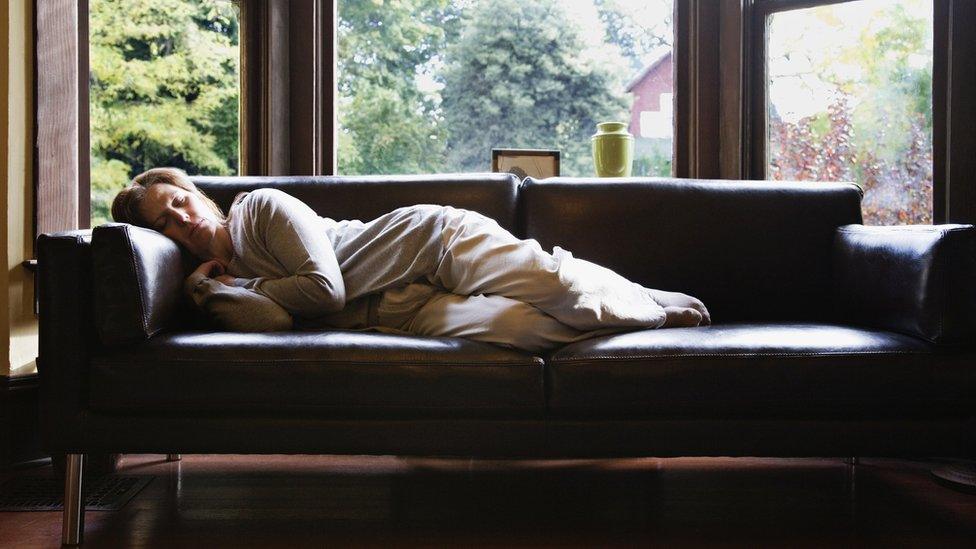
Long Covid has two dozen common symptoms including fatigue, a cough and breathlessness
Thousands of long Covid patients in Scotland are not being referred to a support service, a charity has claimed.
Chest Heart and Stroke Scotland (CHSS) launched the service in February - but say they cannot get in touch with patients because of "NHS bureaucracy".
The Scottish government said it was working with the NHS, but "no one approach" would fit all circumstances.
The latest figures from the ONS, external estimate 74,000 people in Scotland are living with "self-reported" long Covid.
About 60,000 had experienced long Covid symptoms for more than 12 weeks and 28,000 for a year.
However, CHSS said they are only managing between 55-60 patients per month.
The condition has more than two dozen common symptoms - though experts have said they are often unpredictable and affect patients in different ways - and can last months.
New research suggests that being fully vaccinated against Covid cuts the risk of an infection turning into long Covid.
The long Covid support service, funded by CHSS and the Scottish government, was described in February as a first step towards a comprehensive national service.
Its aim was to work with GPs and develop a support plan for people early on in their experience with long Covid as they awaited further NHS treatment.
It came after repeated calls for specialist long Covid clinics, which were introduced in England last year. At the time Scotland was devoting resources to research.
However CHSS chief executive, Jane-Claire Judson, said the service has not made the progress she expected, and instead was meeting patients at the "sharp end" of long Covid.
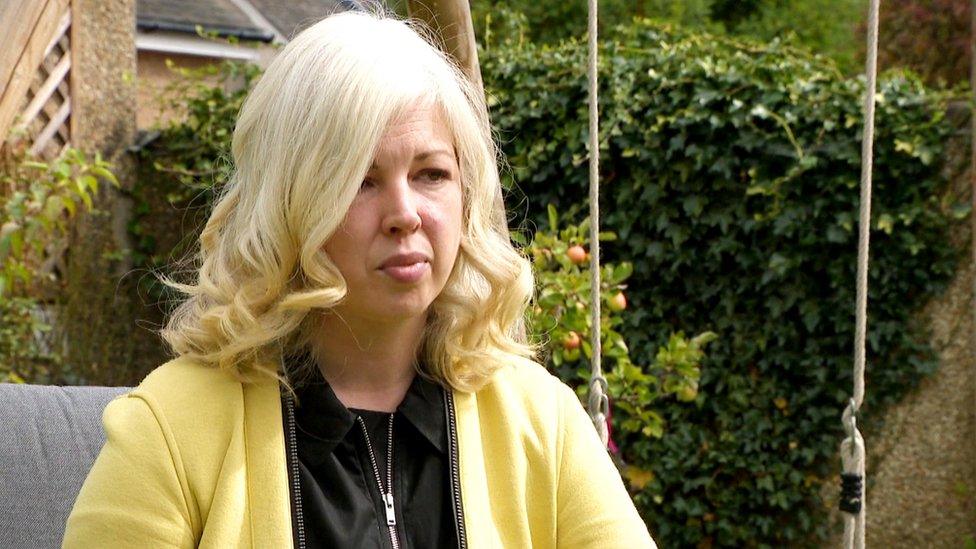
CHSS chief executive Jane-Claire Judson said the current system of support is not reaching enough people
She said: "They come to us as a self-referral, so we're supporting people at the worst points in their long Covid journey - but that's not what the service was for.
"It was to receive referrals from people going to primary care so that we could start working with them early on. That means that thousands of people are not getting the support they need from us or the NHS.
"It means the data sharing is not in place and bureaucracy is preventing us and the NHS from working together and having a massive impact on people with long Covid. That's not acceptable."

'I was really frightened'
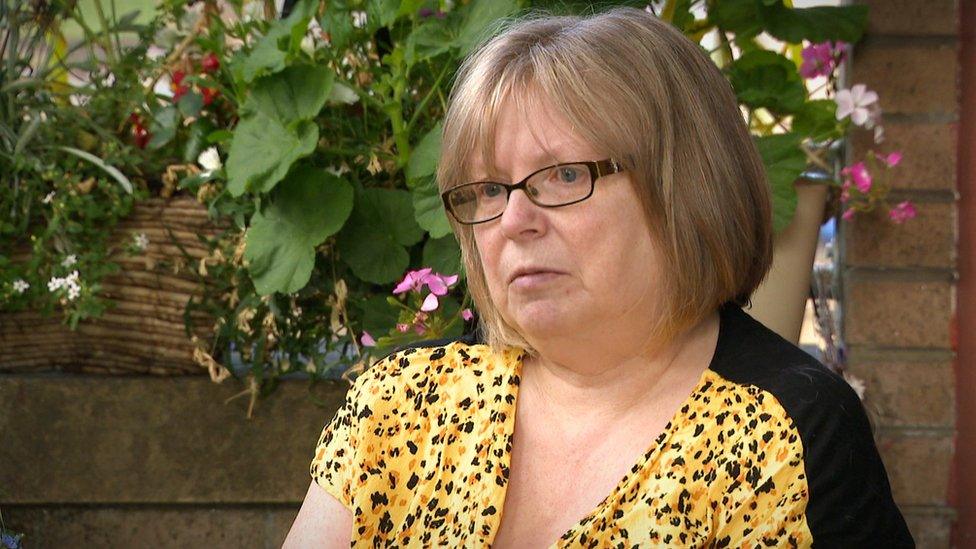
Mairead Johnson said long Covid has limited every aspect of her life
Nine months after contracting Covid-19, Mairead Johnson, 58, and her husband Henry, 62, are reluctant to leave their house in Greenock as they are suffering the effects of long Covid.
"We only go to the shops once a week at night because we don't want to catch Covid again," she said.
"I was really frightened of getting the vaccine because again you didn't know is it going to make the long Covid worse."
Mairead said she and Henry have experienced the symptoms commonly associated with long Covid - breathlessness and fatigue - but that other effects are often unnerving.
She said she has received some support, but often feels nothing can be done for new symptoms as medical professionals know little about the condition.
"My husband would smell burning when there was nothing burning," she said. "My hair has stopped growing, my yawning reflex has gone, I get a racing heart and breathless just from standing up. I have joint pain in my foot, as if one toe is permanently broken.
"You get to that stage where something happens and you go that's long Covid. A doctor said to me that's quite a scary thing because there could be something else wrong that might be serious.
"We need research, but to do the research properly they've got to speak to us and it's got to be collated from every GP practice. It's a brilliant opportunity for them to find out what's happening because it's happening to so many people at the same time."

CHSS have now published a long Covid action plan, external which calls on the Scottish government to make a number of changes.
Crucially it wants a fund to be set up for health boards to establish local long Covid services - although a figure has not yet been established.
It also wants bureaucratic barriers in the NHS to be removed and data sharing to be improved so that it can speak to patients more quickly.
Additionally the document calls for patient care plans to be developed and for medical staff to be trained on long Covid - as the charity said some do not recognise it as a real condition.
During FMQs on Thursday, First Minister Nicola Sturgeon said the organisation had made a number of very important points.
She said she wanted to discuss the recommendations with the charity in detail and will give the capacity fund serious consideration in budget discussions.
The Scottish government says it recognises the impact long Covid is having and has responded by strengthening existing NHS services and investing £2.5m in long Covid Research.
A government spokesperson added: "NHS Scotland continues to deliver its full range of services to support the needs of people with long Covid, and we are engaging with NHS boards as they co-ordinate pathways across primary, community and secondary care services to support a coherent patient journey.
"While long Covid clinics are one model that NHS boards may explore, we know no one single approach is likely to fit all areas and circumstances.
"We are keeping all aspects under review, including specialist services and funding to ensure people suffering from long Covid receive the best possible care and support."


Related topics
- Published2 September 2021
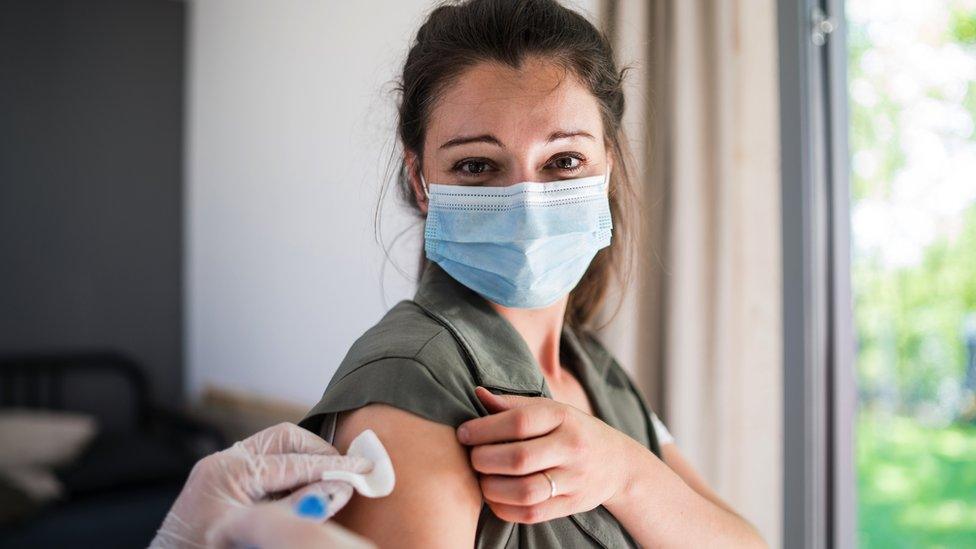
- Published27 July 2021
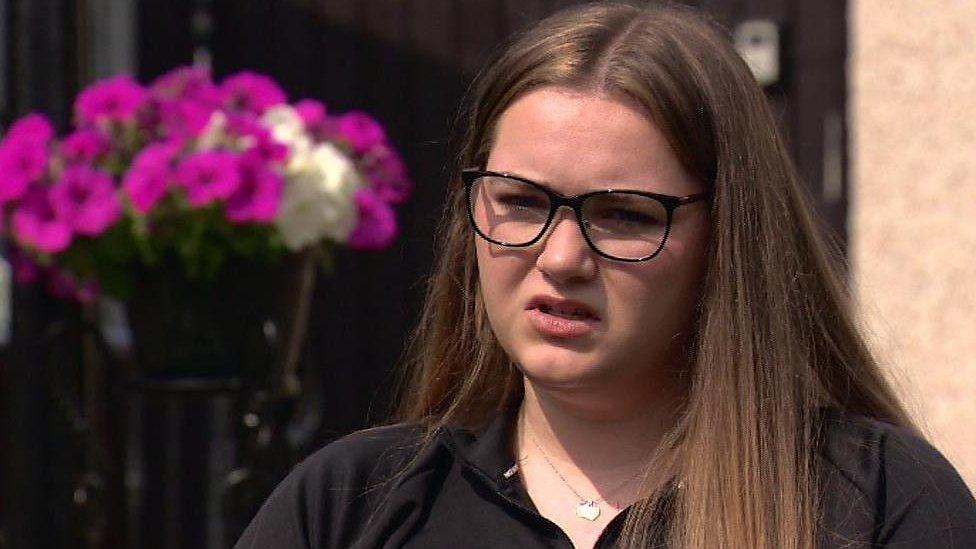
- Published14 July 2021
